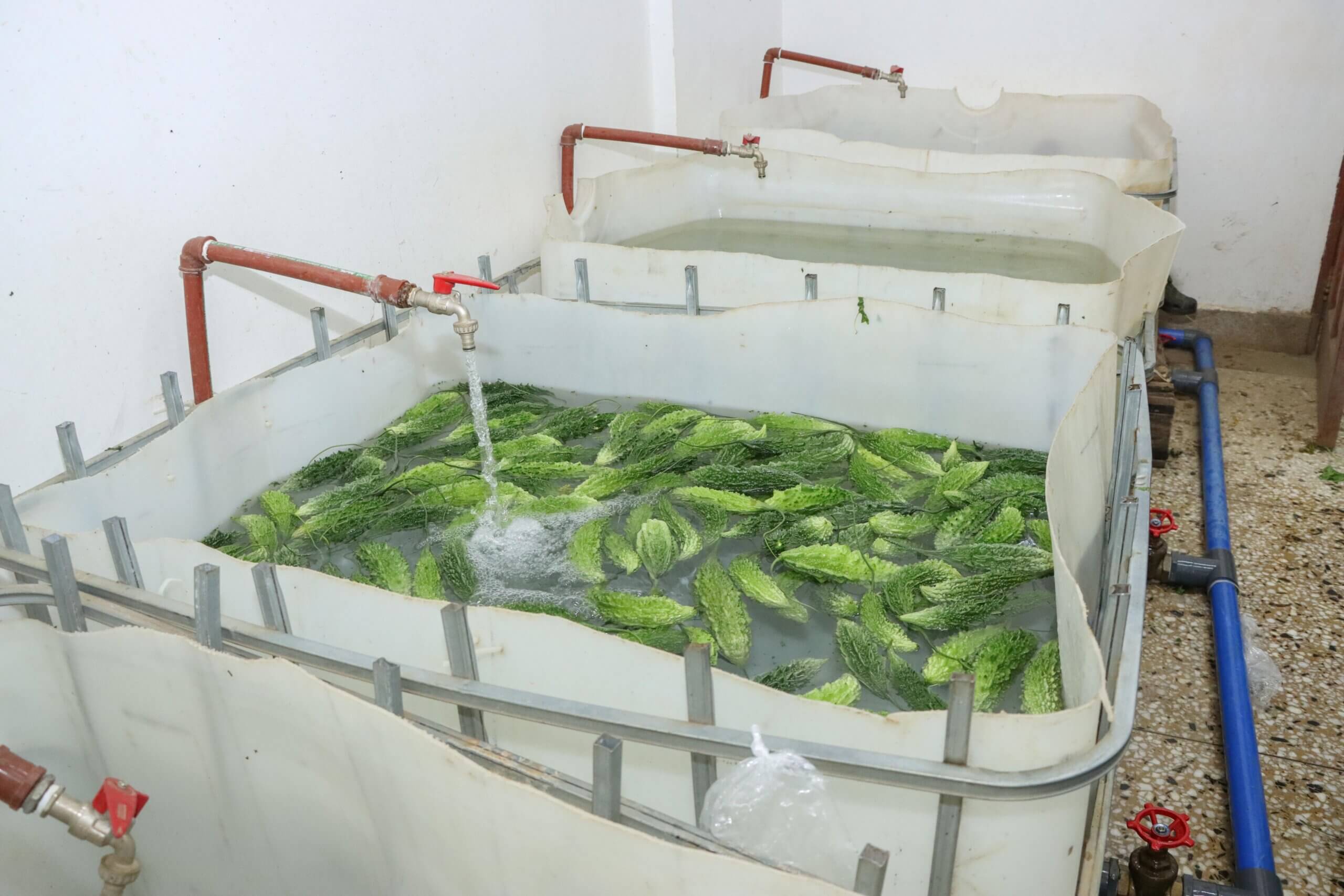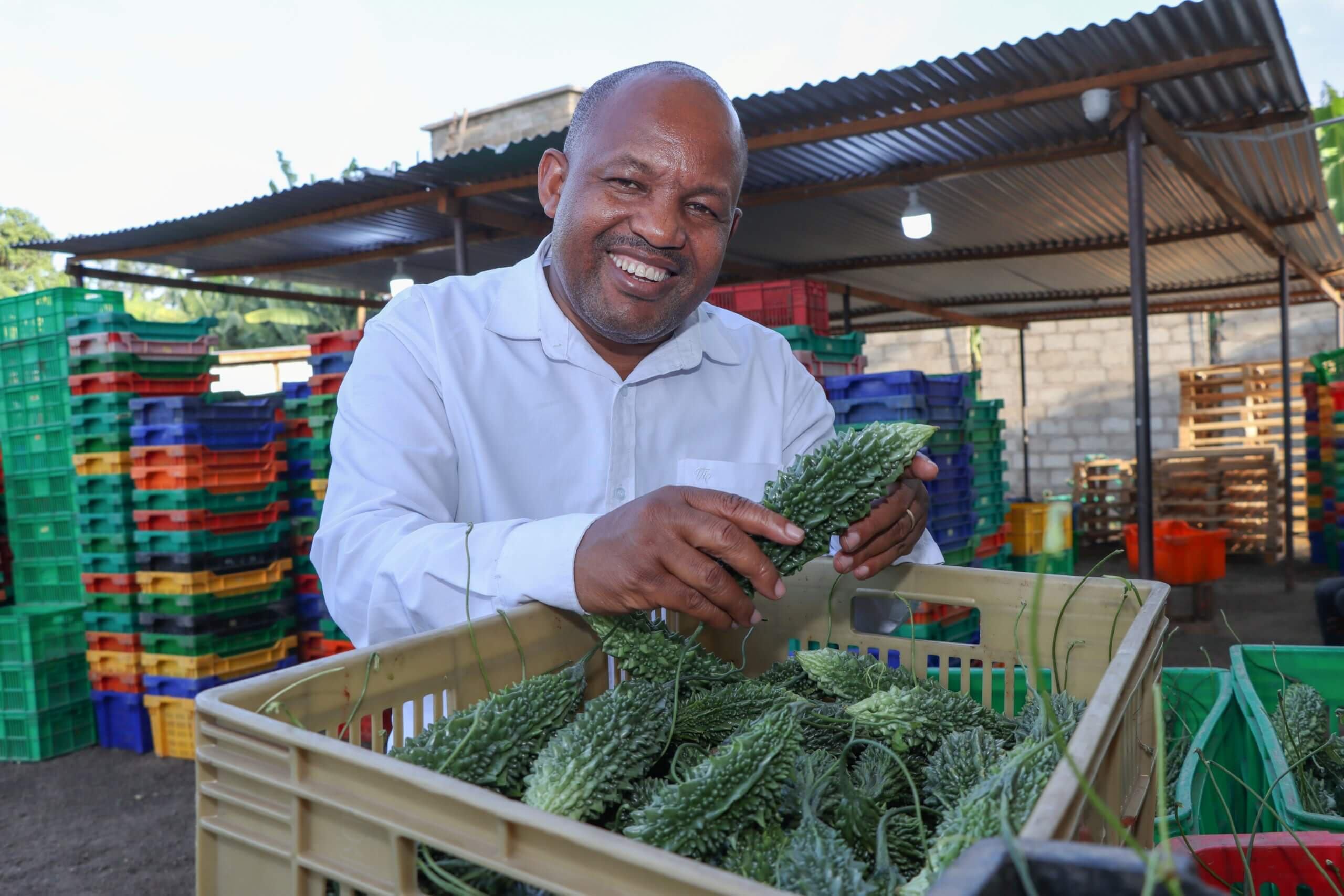Clement Manyatta holding a harvested bitter melon at the firm’s premises in Arusha, Tanzania, in 2025.
Beneath the scorching sun, Pastor Clement Manyata, the CEO of Fresh Field, walks through rows of lush green fields, watching as workers carefully harvest fresh vegetables. Nearby, crates are stacked in neat aisles, ready for export. Such a sight once felt like an impossible dream.
Today, Fresh Field Manyatta exports vegetables, including bitter gourd (bitter melon), various types of chilli peppers such as cherry chilli, different varieties of beans, long beans, okra, and cherry tomatoes. The company exports mainly to Europe, including the United Kingdom, Italy, France, Germany, Norway, and Switzerland. Their goal is to expand their reach and supply to virtually all countries across Europe.
Pastor Clement’s journey from a small-scale farmer to a top exporter was not easy. He founded Fresh Field Manyatta as a small-scale farming operation in Arusha, in northern Tanzania, before venturing into the international market. Exporting required meeting international standards, but Pastor Clement initially lacked the knowledge of certifications such as the Global GAP. He recalls a time when a potential buyer asked about if he had the certification. He confidently responded in the affirmative only to realise later that he had no idea how to obtain it. Without the proper certification, breaking into the European market is out of reach.
Logistics posed another major challenge. With no direct cargo flights from Northern Tanzania to Europe, Fresh Field Manyatta relied on passenger flights to transport its produce. This arrangement was unreliable, with shipments sometimes cancelled at the last minute due to flight capacity issues. Each delay meant risking the quality of perishable goods, such as beans, chillies, and tomatoes, threatening both revenue and reputation. Pastor Clement also struggled to convince local farmers from whom he sourced some of his supplies to adopt modern farming and post-harvest handling techniques. “Many had used the same traditional methods for generations and were resistant to change, making it difficult to maintain the consistent quality required for export,” he recalled.

Harvested bitter melon being prepared for export packaging in 2025.
The turning point came with support from TradeMark Africa and Tanzania Horticultural Association (TAHA). The partner organisations provided training on export standards, market requirements, and logistics. This equipped Pastor Clement with the skills to navigate complex certification processes, allowing him to successfully obtain the Global GAP certification required by international buyers. He also gained insights into improving supply chain management to ensure produce met international quality standards. This support further enabled Fresh Field Manyatta to refine its operations, leading to improved efficiency and reduced losses.
Pastor Clement gained the motivation and impetus to expand his reach, positioning Fresh Field Manyatta as a reliable supplier in the European market, with the fresh produce enterprise planning to expand even further. Production has grown significantly. Initially, Fresh Field Manyatta exported just five tonnes of vegetables per week. In 2024, this increased to 15–20 tonnes, and in 2025, they project shipping between 35–50 tonnes weekly.
Fresh Field Manyatta now contracts 120 farmers, benefiting over 2,500 people in the community. Since managing one acre of farmland requires 15–20 people, and they have over 50 acres under cultivation, creating more employment opportunities for the local communities. Notably, 90% of the farmers they work with and nearly all the company’s employees, 95% to 98%, are women or youth that were previously unemployed, but who now have a stable source of income.















